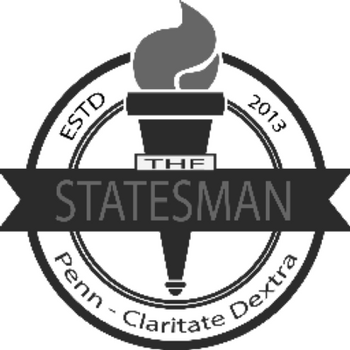UPenn denies existence of fraternity 'hate speech' policy
Since 2017, the Judicial Inquiry Board (JIB) at the University of Pennsylvania, a student-led group within the Interfraternity Council, has had a clause in its constitution punishing fraternities for hate speech. But the Office of Fraternity and Sorority Life, which oversees the Interfraternity Council, denies such a policy exists.
According to the constitution of the Judicial Inquiry Board, the policy outlines “citizenship violations,” defined as “incident[s] of discrimination or hate against another group.” The document does not further define what constitutes “hate.”
Fraternities found guilty of this violation must pay a $500 fine to the Interfraternity Council (IFC).
[RELATED: Fraternity holds charity fundraiser, gets accused of ‘cultural appropriation’]
The constitution provides examples of violations punishable under this new rule. They include “racist comments made to another group” and “insensitive fraternity-sponsored messages.”
In cases brought to JIB, representatives from accused fraternities are given the chance to make their case after evidence is provided. Then students on the board decide whether the charges constitute violations and levy necessary fines and sanctions. Sanctions that JIB can enact include community service, suspension, expulsion, and others.
The UPenn Statesman reached out to the Office of Fraternity and Sorority Life (OFSL) for comment on the policy. Jazmyn Pulley, Director of OFSL, met the request with an outright denial of the policy’s existence.
“There is no such policy under IFC, OFSL, or the University as a whole,” Pulley said. The only policy that exists is the University’s Guidelines On Open Expression.”
[RELATED: Students target frats for ‘cultural appropriation’]
The University’s guidelines contradict JIB’s policy, stating that “the substance or the nature of the views expressed is not an appropriate basis for any restriction upon or encouragement of an assembly or a demonstration.” Pulley further explained that the guidelines “affirm support for the freedom to express, hear, and debate diverse ideas, theories, and opinions.”
UPenn’s policies regarding freedom of expression are strong in comparison to other universities. The Foundation for Individual Rights in Education (FIRE), a Philadelphia-based nonprofit that defends the First Amendment, gave the school a green light rating in its review of college speech codes. Green light ratings go to “those colleges and universities whose policies nominally protect free speech,” according to FIRE.
Both the Judicial Inquiry Board and Interfraternity Council declined a request for comment from the UPenn Statesman.
This article was originally published in The UPenn Statesman, a conservative student newspaper affiliated with the Leadership Institute’s Campus Leadership Program. Its articles are republished here with permission.
Follow The Upenn Statesman on Twitter: @UPennStatesman

